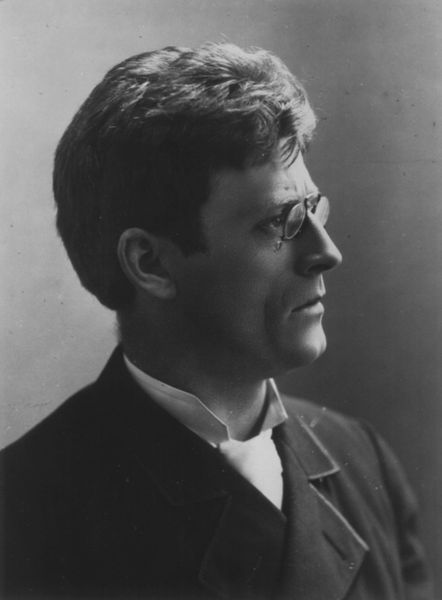One of the nice things about buying used books: finding old bookmarks. This is from a book that was published in 1949: Copenhagen Public Transport Ticket
I spent some time discovering LibraryThing. It was a pleasant surprised to notice how serious the site appears to be. It seems to attract older people who don’t mind some social activity but prefer to do so “without meeting people”.
It basically is a good site to make a list of the books you own and get information about the writer, pictures of book covers, list of other books written by the writer, recommended books that you might like etc. The site links to many large bookshops (including Amazon of course) and many libraries, giving quick access to the details of just about any book in the world. The first 200 books you enter to your collection on the site are for free, after that an annual or a lifetime fee (25 USD) is required.
I started out by adding a few books that I just read, and who knows maybe one day I might pass that 200 books mark. It is fulfilling to think of all the data you can get from your reading habits, probably because it makes you feel that it really represents who you are. When we were teenagers many of us played our music loud to show the world what kind of cool guy/girl we were. That doesn’t really work anymore when you discover that wearing that extra earring doesn’t really make you look smarter, and that to many people it might actually be a sign that “things are not quiet developed up there”. So we middle-aged people try it with books. “I read Socrates” so that makes me smart; “I have more than a thousand books in my library,so don’t you tell me where to buy bread!”
It will take a while for us older people to discover that it is just as silly as writing “Red Hot Chilli Peppers” on your school bag. But until then i’ll fill out the books I read, tag and order them and compare my library with others to see how I am doing. “I’ve got The Poverty of Philosophy by Karl Marx, anyone else who is just as intellectual as me?”.


Map of the main attack by the Swedish army on Copenhagen on the 11th of February 1659. Source: Wikipedia
When listening to the danish language program Sproghjørnet I heard a discussion about the word “Prøvesten”. It was said that besides being a stone to test whether a material was what it seemed to be, for example gold, it had also been the name of a ship. This ship, together with other ships, was after ending its duties, sunk to form the basis of a little Island called Prøvesten on which was build a fortress to defend Copenhagen.
.
I went looking for this little island on the internet and saw that it is now part of Copenhagen harbour, well connected to the mainland. I also found this map showing the little island of Prøvesten but also the rather immense defense works of Copenhagen. I had hardly realized that those remains of the defense system still exist and that Copenhagen had once been fortress like that. I came to think of this post of Cristhoper’s picture blog with the text explaining about an amazing long siege of Copenhagen.
.
It struck me that there is a lot of focus in Denmark on the prehistoric times of the Vikings and before. An enormously rich and unique period of Danish history, but there have been other times, much closer to ours, that have been of major importance to the present state of this part of the world.
.
I know a tiny little bit about Swedish supremacy and Danish invasions and interests in the south of Sweden and the Danish interests in the north of Germany. There must have been many wars and events, but it is not a very common thing to discuss this period in the media or elsewhere.
.
Was Copenhagen indeed such a strong fort as the remains of its walls suggest?
.
Being a Dutchman I remember a story from Danish history books about the Dutch “helping” to free Copenhagen from a siege by the Swedes, and I wondered if it was a part of the same story.
.
It is quite amazing to notice that finding information about this period is not that simple. The internet is great, fantastic, but sometimes it is clear that it is also still young and under development.
.
Luckily there is Wikipedia telling about the long siege of the apparently well defended and walled city of Copenhagen in 1658 to 1660. And indeed it is confirmed here that the intervention of the Dutch fleet was a major help that probably saved the town. Wikipedia states (without naming a source) that Dutch marines even helped on land, o.a. in this fragment:
.
“The moats and the beaches had been kept free of ice, and now the ice free zones were widened to 44 feet with the help from 600 Dutch marines. The ice was thick, and the work was done in heavy snowfall from 4 o’clock in the afternoon till evening on the 10 February.”
.
After reading a little bit more about this Swedish attack on Denmark I now understand that Denmark was on the verge of being wiped out completely. A major event as big as the defeat against Germany in 1864. The latter being more often mentioned and commemorated, probably also because it is not that long ago (as a result of this war parts of south Denmark became danish again as late as in 1920). But where as the teaching of history and the culture and identity of the Dutch is mainly based upon the 17th century, it is in Denmark an eventful period that seems to be outside the main interest or perhaps overshadowed by other periods.

After reading a post by Merlin Mann on the process of starting a project (and to keep going) and after listening to Elizabeth Gilbert in a TED-talk mentioned in the post about nursing your creativity, I understand that they offer a way to deal with one of the major obstacles for writers..
We all know it basically comes down to the old truth of “ You just have to work for it and all will be well”, but it is not so easy in practice for the majority of us..
Both clearly indicate that writing on a daily basis is the key to getting work done and creating possibilities to get inspired during the process. As Merlin puts it in a Tweet:
.“Creative work, summarized: In the time you set aside each day to work your ass off, ignore anything that makes you consider stopping.”
.To be able to do this for a longer period – what about a lifespan? – is undoubtable the key to success. As Merlin stresses, this “anything that makes you consider stopping” is no sinecure.
.The majority of those threats that endanger continuation are based upon fear, and this means fear in all its facets. That is easy to say as fear rules just about anything in our world, but when it comes to for example writing it is all the more clearly. Writing is listening to the voice within, digging for inspiration in the depths of a human being, listening to all the tails from the incredible feedreader in the unmeasurable caves of our head. And what voices will be more loud and clear than the ones that originate of fear?
.To ignore those voices and to keep digging for the gold is a major achievement, reminding me of many classical stories, like for example Frodo in “The Lord of the Rings”. Being a writer, an active and serious one, is going through a lot of darkness, traveling on a seemingly hopeless journey like Frodo did.
.But it is also a quest, something that has to be done, for not doing it equals giving up and letting life age you without truly saving your soul.
.
.In her speech on Tedtalk.com Elizabeth Gilbert tells about her way of dealing with the voices of fear. She admits that they are a serious threat to her existence as a well-functioning human and comes up with a solution. Although being aware that it is not the only and most dependable system possible she states that it does her good and advocates to people to try it out for themselves. The idea originates from ancient Greek and Roman times, and it is not only for that not a revolutionary new idea, but Elizabeth gives a positive approach to it that can be a great relief to many.
.Her “trick” is to put the source of inspiration outside the person and thereby putting the blame for many of the problems the voices in head come up with outside herself. It is in that way not her responsibility to produce another flawless bestseller or her fault when the day’s writing isn’t flowing at all, but it is the inspirational voice from outside her that lets her down. Following old Roman traditions she calls this voice a genius.
But unlike romantic ideas of writers, or any other creative persons, being struck by a sudden moment of inspiration, like an arrow of cupid’s bow, she definately holds on to the idea that all she has to do to let her genius work for her is to show up and work every day. That is the only way to blame her genius and not her, because she was there, writing at her desk, giving the genius a fair chance to work.
.


I thought this morning about the turns life can take, movements that confuse me as I want it to be linear.
I liked to write in the early 90’ties. But I replaced it by painting landscapes and was bit by it for more than a decade. This passion became impossible and I returned to writing, still longing for the same passion I felt for painting. Trying, wondering, giving up.
One of the things I ponder about is a fear of loosing possibilities to obtain some sort of fulfilment. If my life isn’t linear, how can I then get to the end of my possibilities? In other words: If I don’t choose and continue writing, or painting, or .. what…. how can I then develop?
In a discussion I was told that everything I have done has not been for nothing, it made me who I am, not who I could have been. There is no need to give up and let life pass. But I don’t always know how to continue.
Today.
Some weeks ago I heard a radioprogram about the music of Portugal, Fado. I got interested and googled it. This brought me to Swedish blogs about music and literature. Today I ended up on Bodil Zalesky’s blog where I found a post about the writer/poet Rainer Maria Rilke. I got interested because I know Rilke from my painting time – he wrote about the painters colony in Worpswede. She started a post with the wonderful sentences: “Kanske har jag aldrig läst någon Rilke-dikt här under trädet. Vilken ska då bli den första?”, and then she choose the following poem:
Wunderliches Wort
Wunderliches Wort: die Zeit vertreiben!
Sie zu halten, wäre das Problem.
Denn, wen ängstigts nicht: wo ist ein Bleiben,
wo ein endlich Sein in alledem? –
Sieh, der Tag verlangsamt sich, entgegen
jenem Raum, der ihn nach Abend nimmt:
Aufstehn wurde Stehn, und Stehn wird Legen,
und das willig Liegende verschwimmt –
Berge ruhn, von Sternen überprächtigt; –
aber auch in ihnen flimmert Zeit.
Ach, in meinem wilden Herzen nächtigt
obdachlos die Unvergänglichkeit.
Rainer Maria Rilke
I had thought about the feeling of giving up that comes over me sometimes, but one resigns to do silly things if you want to make time pass. Indeed, I know actually, as Rilke says: Wunderliches wort: die Zeit vertreiben! Sie zu halten, wäre das Problem.
On the right side of Bodil’s blog is a place for “Senaste kommentarer”, and at the moment the latest is made by Christopher Rådlund. And I know him too from my painting time. This morning I noticed to my surprise that I couldn’t remember some names of painters I liked or corresponded with, but I recognized Chrishopher’s as soon as I saw it. He was my “secret tip” if people asked me for my favourite painters. It is always a remarkable feeling I get when my two worlds, writing and painting, meet.
In the post Christopher reacts on a discussion about artists and political opinions that can often be connected to them. This is something that is often being discussed, and these days also in connection with the celebrations of Knut Hamsun’s 150th birthday. One of the few books that made an impression on me – few, because I only read a few – was the first chapters of Knut Hamsun’s “Den Siste Glæde“. But as we know Knut Hamsun has connected himself actively to the Nazis during the 40ties and even 50ties. So did another favourite of mine, the writer of -I would almost say “the other book I once read” –Filip de Pillecijn. I am never sure how to deal with these connections, as I don’t think that artists and their works have to be thoroughly connected: a wonderful painting doesn’t have to be made by a wonderful person.
It all meant that while I was already thinking about my seemingly non-linear life, I went back and forth between writing and painting while I read a post or two. And as was mentioned to me during the discussion, because of my background I could get the most out of it. I better keep going.
Du musst das Leben nicht verstehen
Du musst das Leben nicht verstehen,
dann wird es werden wie ein Fest.
Und lass dir jeden Tag geschehen
so wie ein Kind im Weitergehen von jedem Wehen
sich viele Blüten schenken lässt.
Sie aufzusammeln und zu sparen,
das kommt dem Kind nicht in den Sinn.
Es löst sie leise aus den Haaren,
drin sie so gern gefangen waren,
und hält den lieben jungen Jahren
nach neuen seine Hände hin.
Rainer Maria Rilke

“Humanity´s view of the world as our property, our dominion, our stewardship, is like that of a child who imagines himself the center of existence, with all other beings having no purpose but to serve him”. Edward Abbey: Confessions of a barbarian.
Found on: Occident